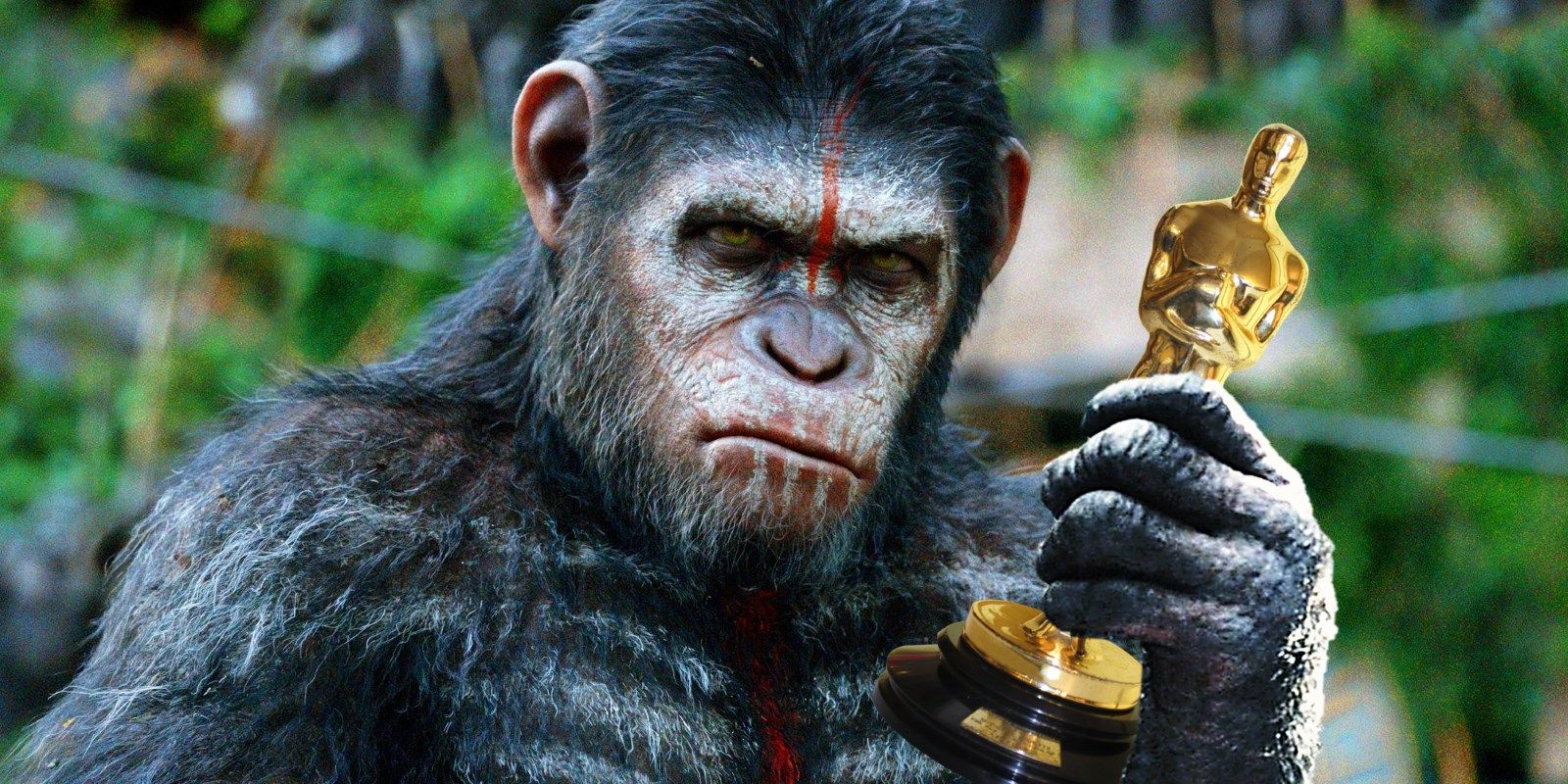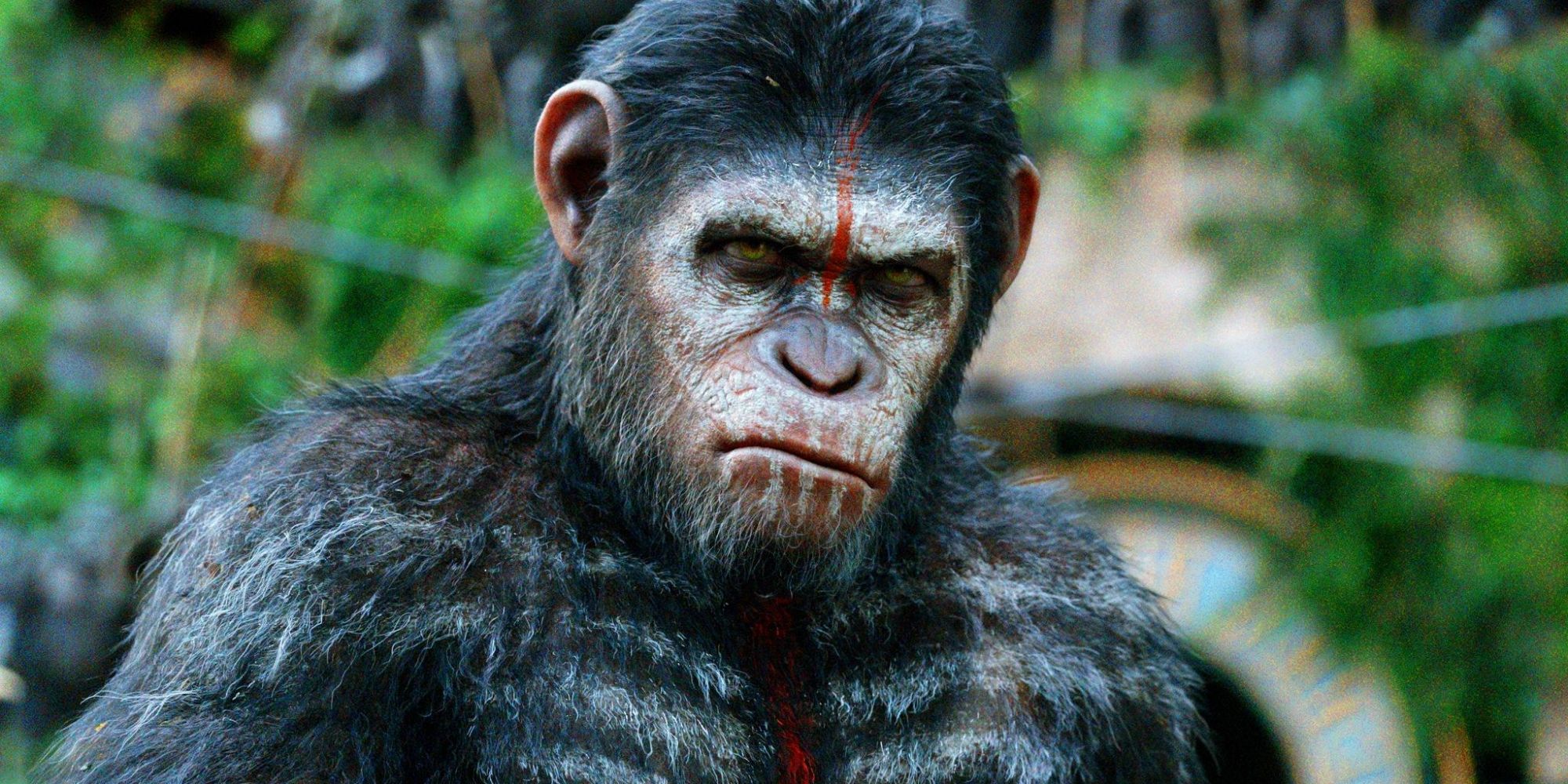With roles in massively popular franchises such as The Lord of the Rings, Star Wars, and Planet of the Apes, Andy Serkis is a name many moviegoers recognize, but not all viewers know what he looks like. Serkis, of course, has become a master of motion-capture acting, pioneering the technique when he played Gollum for the first time and revolutionized the way digital characters are brought to life. He took things to the next level when he took on the part of Caesar in the rebooted Planet of the Apes series, earning widespread acclaim for his performances. Several believe that Serkis' work is deserving of an Oscar nomination, but the Academy has not recognized him yet in his career.
The primary reason for that is most likely the fact that the Oscar voters do not know what to make of mo-cap acting; there's an ongoing debate over how much of what's on-screen is because of the visual effects team and how much is the performer on-set. It's a tricky situation to examine, but in Serkis' mind, there's no discernible difference between acting in the flesh and acting in the mo-cap get-ups that are later replaced by photorealistic CG creations.
Screen Rant visited the War for the Planet of the Apes set and had an opportunity to speak with Serkis and his co-star Terry Notary (who plays the ape Rocket). When asked if the Academy should create a separate category for motion-capture performances, Serkis explained why they should all be under one umbrella:
"Absolutely not. I don’t know what Terry thinks. And we don’t really talk about it. The point of the matter is that we are actors playing roles. They happen to be, in this instance, apes. But there is no difference. I mean in the scenes that we’re playing, if we were to block out the scenes as actors in costumes, it would be no different, the process is no different. The process of acting is no different. You are embodying the character. You are creating a psychology, a physicality. You are living the moment."
Notary was in agreement with Serkis, describing mo-cap as "a different form of costume" and stating that Serkis should have won for his turn in Dawn of the Planet of the Apes. Serkis was quick to acknowledge the "amazing work" the animators do during post-production and discussed the "gray area" of who ultimately is responsible for the character audiences see in the final product. As one would expect, Serkis believes it is the actor first and foremost, suggesting that what he and the others do on-set lay the foundation for what the digital artists later work with. If it weren't for the actors, things could be greatly changed:
"But without question, these characters are authored by what we are doing on set. They are not authored by animators. Animators do amazing work translating, interpolating the characters in the facial performances. What we’re creating on set, if you don’t get it on the day, in the moment, on set, in front of the camera with the director and the actors, the emotional content of the scene and the acting choices, if they are not there on the day, they will never be in the movie."
Serkis makes an interesting point. There's no denying that the visual effects team does tremendous work and deserves much credit for animating extremely lifelike apes that have become the stars of the franchise. However, Serkis, Notary, and Toby Kebbell (Koba in Dawn of the Planet of the Apes) are the ones who breathe life into the characters. It's safe to say that the apes in these films are not typical digital effects and the end result is a byproduct of what the actor and VFX artists do. The old "digital makeup" argument has been made for years and definitely has some merit. Actors whose appearances have been altered due to heavy amounts of prosthetics have been nominated in the past (John Hurt in The Elephant Man, for instance), so it's frustrating for fans that Serkis and his fellow apes cannot be invited to the ceremony as well.
While the Academy may never break this ground, there is a compromise to be made. The Oscars hand out Honorary Awards each year, recognizing the achievements of various industry professionals in fields ranging from costume design to acting. Regardless of how one feels about Serkis scoring a nomination in a competitive category like Best Supporting Actor, many would be in agreement that his contributions to advancing the art of mo-cap acting are certainly worthy of some kind of award. Hopefully one day in the near future, Serkis is honored by the organization. Perhaps another captivating performance as Caesar will make it happen.



